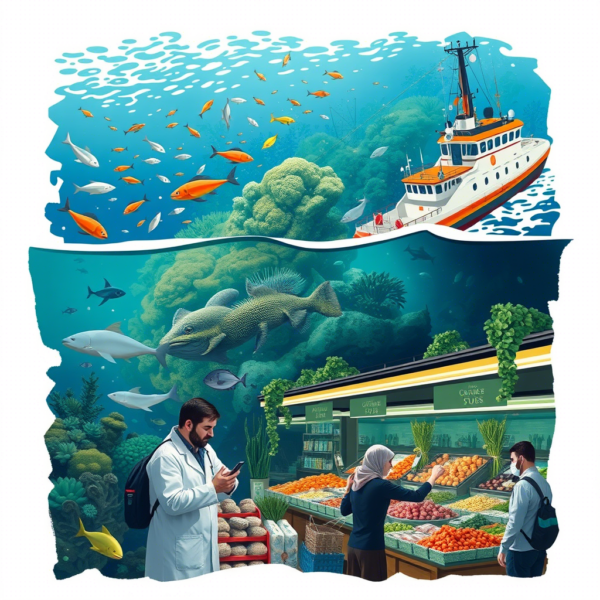

The global demand for seafood is on the rise, driven by its reputation as a healthy and nutritious protein source. However, this growing demand has put immense pressure on marine ecosystems, leading to overfishing, habitat destruction, and declining fish populations. At REDINN, we believe that innovation and technology can play a pivotal role in addressing these challenges, ensuring that seafood remains a sustainable choice for future generations.
A recent article published by Horizon: The EU Research & Innovation Magazine highlights how consumer demand is pushing the seafood industry toward more sustainable practices. This aligns perfectly with REDINN’s mission to foster innovation in the blue economy and promote sustainable seafood production.
Consumers are increasingly aware of the environmental impact of their food choices. This awareness has led to a surge in demand for sustainably sourced seafood, prompting retailers, restaurants, and producers to adopt more responsible practices. From eco-labeling to traceability systems, the industry is responding to this shift by offering transparency and accountability in seafood supply chains.
At REDINN, we support this movement by working with startups, researchers, and industry leaders to develop cutting-edge solutions that enhance sustainability. Whether it’s through aquaculture innovation, blockchain-based traceability, or alternative seafood products, we are committed to driving change in the sector.
The Horizon article emphasizes the importance of innovation in meeting the dual challenge of satisfying consumer demand while protecting marine ecosystems. REDINN is at the forefront of this effort, leveraging technology to create scalable and sustainable solutions.
For example, we are exploring advancements in aquaculture, such as recirculating systems and integrated multi-trophic aquaculture (IMTA), which minimize environmental impact while maximizing efficiency. Additionally, we are supporting the development of alternative seafood products, such as plant-based and cell-based options, which offer consumers sustainable choices without compromising on taste or nutrition.
Achieving a sustainable seafood industry requires collaboration across the value chain. REDINN actively engages with stakeholders, including policymakers, researchers, and industry players, to create a cohesive ecosystem that supports innovation and sustainability. By fostering partnerships and providing resources, we aim to accelerate the adoption of sustainable practices and technologies.
As consumer demand continues to drive change, REDINN remains committed to leading the charge toward a more sustainable seafood industry. Together, we can ensure that future generations can enjoy the benefits of seafood without compromising the health of our oceans.
Thank you, by
REDINN-CC
Visit Us, Give us a call, write us an email or fill out the form below.